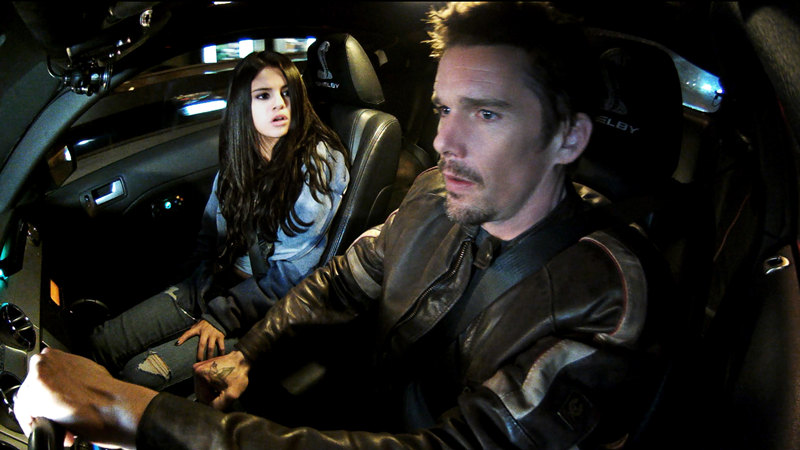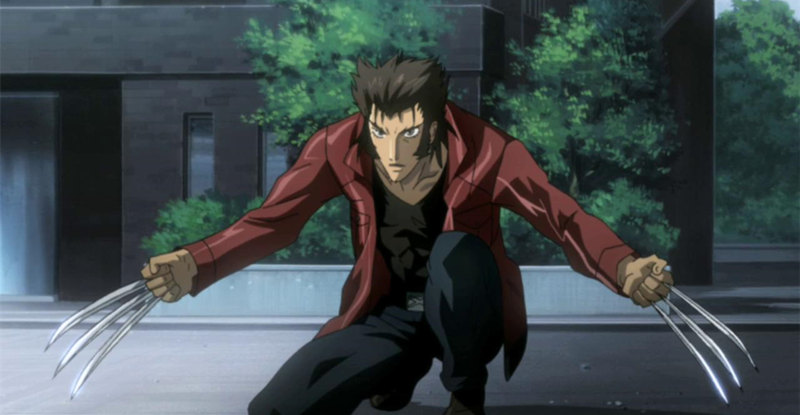First off, you have to understand that Prince is a much better singer than he is an actor.
Second, it helps to remember that “Purple Rain,” in which Prince made his screen debut in 1984, is a much better music video than it is a personal drama. Keep those two things in mind, and you may enjoy the movie better.
The story appears to be at least semiautobiographical in that it recounts the rise of brash young Minneapolis singer and his band, The Revolution, as they come up through the ranks in a nightclub called First Avenue. Prince plays the young singer, referred to only as “the Kid,” as somebody too wrapped up in himself to notice the people around him, until he meets another young entertainer, Apollonia (Apollonia Kotero), with whom he falls in love. At least, he loves her as much as he loves himself. It’s only when he finally sheds his ego that he becomes a success, so we find the movie contains a moral along with a ton of good music.
The opening number sets the stage, going on for about ten minutes, while bits of the plot unfold in the background. It’s a rollicking sequence, joyous really, and sparkles from beginning to end.
Then the actors begin to mouth some words, and we learn what we’re up against; namely, that this movie is not going to win any acting awards. Frankly, the acting is dreadful. When the Kid and Apollonia first see each other, they give one another the eye, and it’s one of the most awkward moments I’ve seen in a major motion picture. There follow, however, moments of equal clumsiness from practically all the actors, many of the performances laughable they’re so bad. The timing is off, the phrasing is ungainly, the pauses between responses are sometimes monumentally prolonged. When Prince speaks, it’s as if he took thespian lessons from Sylvester Stallone, he murmurs and mumbles so much. Yet he’s one of the better actors in the piece. They’re all so bad, they speak as though they were reading the words for the first time, and they make one wince in pain having to listen to them deliver a line.
Fortunately, there is so much good music involved, both between bouts of melodrama and behind them, that it easily distracts one’s mind from the clunky histrionics unfolding in the story line.
The main conflict in the movie, besides the inner, psychological one going on the Kid’s head, involves a rival singer named Morris (Morris Day) and his band, The Time. Any similarity between these characters and real-life characters is purely not coincidental. Morris tries to steal Apollonia away from the Kid and use her in his own band, but do we care? Not really. Almost nothing the characters do or say has much motivation, much explanation involved, so plot-wise things are pretty much at a dead-end.
Yet the characters have a curious charm about them. Despite the Kid’s cocky, stubborn self-pride, Prince makes him engaging and charismatic. Apollonia is hard-edged but vulnerable. And Morris is probably best of all, not for his acting, but for his self-effacing humor. He seems like the only person in the movie having a good time. He doesn’t take himself or his character as seriously as Prince does, and for that reason he makes his role more memorable. Heck, he even does an Abbott-and-Costello routine that’s kind of cute.
The 1980s were a time of unbounded optimism, and we see it in the film. The young people have dreams of making it big, and with perseverance and talent, they do. The fact is, the music album probably did better than the film did, as it should have because the music is quite fetching, with energy, punch, and sparkle. The climactic song, “Purple Rain,” is actually rather moving.
“Purple Rain” gets an R rating for profanity, nudity, and some steamy, stylized sex.
Trivia: For reasons unknown, WB’s press site lists the HD DVD as having a running time of 114 minutes, and they mark 114 minutes on the disc case. But the same press site lists the 20th Anniversary Special Edition (SD) at 111 minutes. Moreover, my Toshiba’s time counter as well as the Internet Movie Database say the film’s running time is 111 minutes. I’d go with 111.
Video:
While the soundtrack has all the earmarks of a big-budget production, the look of the rest of the film says low-budget. In any case, the film’s 1.85:1 theatrical ratio fills up a widescreen television nicely, and the 1080 resolution, VC-1, high-definition transfer is undoubtedly an improvement over the standard-definition version. Still, as I say, there is a low-budget grittiness to the production that also comes through in HD.
For instance, there is a small degree of grain present in almost all of the darker scenes, which is almost all of the scenes, since the film takes place mostly indoors or at night. What’s more, these darker scenes tend to be a tad murky and rough; and by HD standards the picture is slightly soft and blurred. Not that the video quality is awful or anything; it just isn’t in the upper half of all the HD DVDs I’ve watched. There is even a moment in the film where the main characters are near a lake, and there appears to be a case of noise on the screen; either that or it’s a reflection in the camera lens off the lake waters.
Audio:
Because this movie is mainly about music, and because the music made up one of the best-selling albums of all time, Warner Bros. offer it up in both Dolby Digital Plus 5.1 and Dolby TrueHD 5.1. Switching back and forth between the two audio formats reveals only marginal differences, but to my ears the less-compressed TrueHD seems to display better imaging, better front-channel separation, a bit more center-channel depth, and a fraction more punch. In both formats, though, the upper midrange is aggressively forward and bright, and there is not much directionality in the surrounds. The soundtrack’s strengths are its solid bass, its wide and forceful dynamics, and its rear-channel musical ambience enhancement. We can feel the blast of a live rock concert from this disc.
Extras:
Warner Bros. carry over the extras from their aforementioned 20th Anniversary Edition, and again they are in standard definition. First, there is an audio commentary by director Albert Magnolia, producer Robert Cavallo, and cinematographer Donald E. Thorin. They are somewhat static in their delivery but enthusiastic and enlightening. Next, there is a twelve-minute featurette, “First Avenue: The Road to Pop Royalty,” which provides information on the real-life Minneapolis nightclub where Prince and the Revolution made it big. Third, there is a twenty-nine-minute documentary, “Purple Rain Backstage Pass: Behind the Scenes,” which does exactly as advertised and gives us the story behind the success of the “Purple Rain” movie. After that is a ten-minute featurette, “Riffs, Ruffles and a Revolution: The Impact and Influence of Purple Rain,” dealing with the success of the record album and the movie.
Things wind down with a twenty-seven-minute MTV première party original broadcast and eight music videos from Prince and The Revolution, The Time, and Apollonia: “Let’s Go Crazy,” “Take Me With U,” “When Doves Crry,” “I Would Die 4 U/Baby I’m a Star,” “Purple Rain,” “Jungle Love,” “The Bird,” and “Sex Shooter.”
Then, there is a Prince movie-trailer gallery that includes “Purple Rain,” “Under the Cherry Moon,” and “Graffiti Bridge.” And that’s followed by twenty-eight scene selections but no chapter insert; English as the only spoken language; English, French, and Spanish subtitles; and English captions for the hearing impaired. As always, WB also include pop-up menus, bookmarks, a zoom-and-pan feature, an indicator of elapsed time, and an Elite Red HD case.
Parting Thoughts:
Yes, there are some actors in “Purple Rain” and some plot developments, but the movie is primarily about the music. Here is where the HD DVD shines, making the music sound as good as it probably did in a theater, or, depending on your audio system, maybe better. The improved video quality helps, too, but I doubt as much as the audio.


